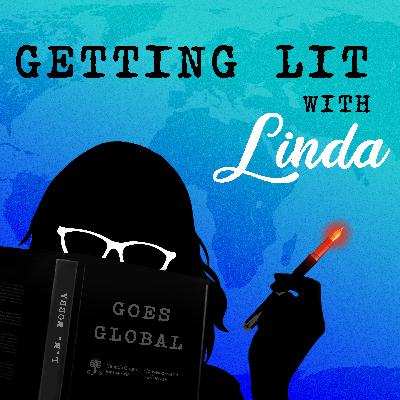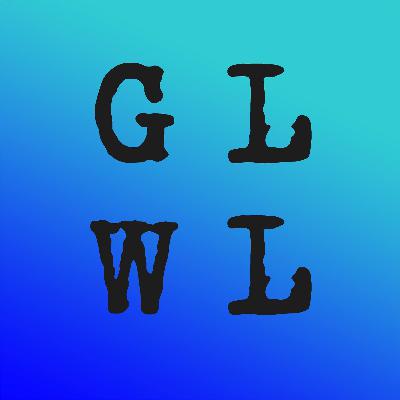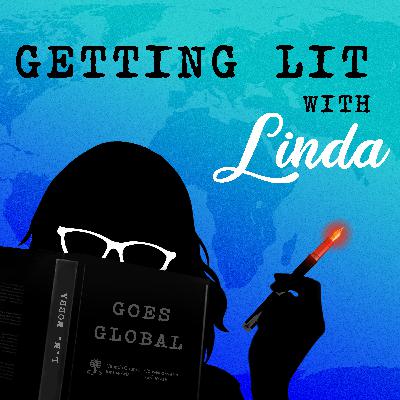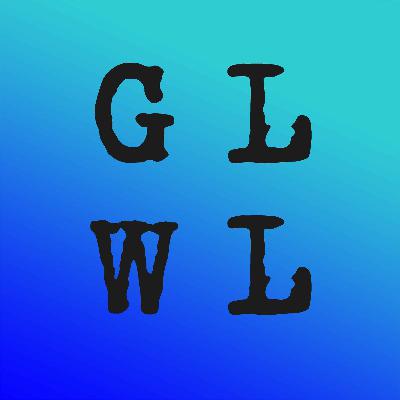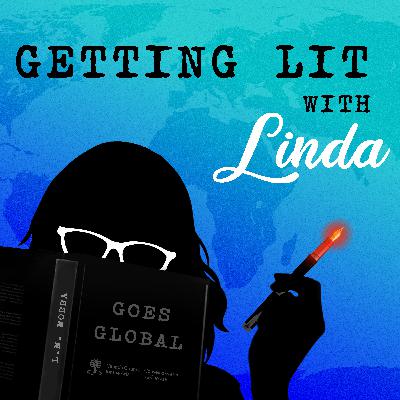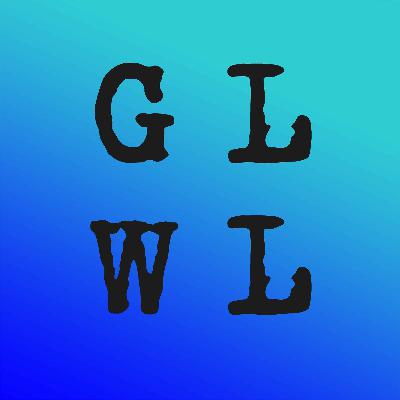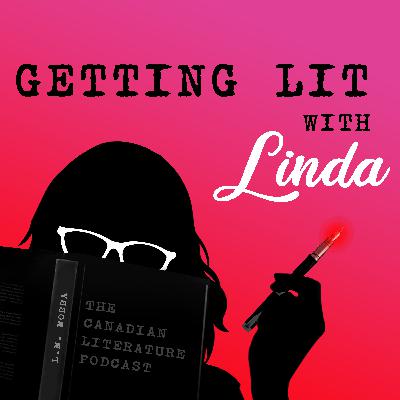Discover Getting Lit with Linda - The Canadian Literature Podcast
Getting Lit with Linda - The Canadian Literature Podcast

Getting Lit with Linda - The Canadian Literature Podcast
Author: Linda Morra
Subscribed: 12Played: 360Subscribe
Share
© Linda Morra
Description
Using her expertise as a seasoned literature professor, Linda M. Morra develops provocative, timely insights about books from Canada and elsewhere to show why stories are relevant for all of us. Hosted and written by Linda Morra.
Hosted on Acast. See acast.com/privacy for more information.
100 Episodes
Reverse
Why should we pay attention to scars or scar tissue? After the original injury heals and its pain recedes, should we ignore what’s left behind? In this episode, Linda mulls over these questions while considering Madeleine Thien's "Alchemy," from her collection, Simple Recipes. Don't know Thien's work? Check out her award-winning novel, Do Not Say We Have Nothing (which Linda discussed in Season 1, Episode 3) and her most recent novel, The Book of Records. She also offers her best wishes for the new year, in this, the last episode of Season 6 (2025).Writer/host/producer: Linda Morra; Associate Producer: Maia Harris; Music: Raphael Krux (The Madness of Linda). Hosted on Acast. See acast.com/privacy for more information.
Our warmest wishes for the season – and a reminder that this is the last interview for the podcast (there may be one smaller episode at the year’s end, but not an interview), before we open up voting for this year’s GLWL awards: the author featured in your favourite episode will receive a cash prize and medal to honour their involvement.In this episode, Linda reflects on how boxes are at times about imposed limitations. "Don’t box me in," you might argue – or let’s try to think outside the box (because it’s time for a change!). And it is this -- thinking and living outside the lines (and boxes) -- that Susan Swan’s wonderful new memoir, Big Girls Don’t Cry: A Memoir About Taking Up Space (HarperCollijns), compels us to do, to locate our sense of dignity and agency, to find our sense of self-worth.Swan is the author of several novels including The Biggest Modern Woman in the World (1983), The Last of The Golden Girls (1989), What Casanova Told Me (2004), and The Wives of Bath (1993), which was made into the film Lost and Delirious (3:45). In this episode, we discuss how taking up space can be positive for women (and men too!), a means to shift beyond the conventions that have hemmed her in (and us) and to find our way out of the boxes that have contained us.Other points of discussion:the genre of the memoirMargaret Atwood and official autobiographySoren KierkegaardExecutive Producer: Linda Morra; Associate Producer: Maia Harris; Music by Raphael Krux ("The Madness of Linda") and Kevin MacLeod ("Natural Vibes"); Sound producer: Jason C. Hosted on Acast. See acast.com/privacy for more information.
On a lovely fall afternoon in October, Linda drove up to possibly one of the most charming spots in Quebec, just off-island of Montreal —Hudson, on the unceded territory of the Kanien’keha:ka. Hudson has much to commend to it, but, in this instance, it was StoryFest, the annual literary program hosted through the Greenwood Centre that invites writers to come and speak to audiences there and that extends back to 2002 (yes, it’s been evolving over twenty years).Linda drove up to Hudson to interview the journalist, Brian Stewart, about his memoir, On the Ground: My Life as a Foreign Correspondent -- a perfect book for this year's theme, Getting Lit Goes Global. Stewart was, for decades, one of Canada’s most prominent television journalists, acclaimed for his foreign coverage for both CBC’s The National and The Journal. Born in Montreal (welcome back, Brian!), and originally a newspaper reporter, he went on to become foreign correspondent for CBC in London and for NBC in Frankfurt. He worked in 10 war zones, hosted the CBC foreign affairs show Worldview, and interviewed many of the historic figures of his time. In this interview and in his book, Stewart speaks of the urgency of having journalists on the ground to bear witness to what is happening across the globe and of having journalists as moral witnesses, reminding audiences of the costs globally of famine and war and environmental disaster, of the need for greater political accountability.With thanks to StoryFest organizers, Julie Gedeon and Sandy Racicot, to Larry Cool for recording sound, and to Jason C. for sound production. Linda Morra, Producer/Host; Maia Harris, Associate Producer; and Raphael Krux, Music.Just a reminder that voting opens soon for this year’s GLWL prize for best episode or author. Please do vote and honour your favourite writer represented in an episode of season 6, in 2025. Hosted on Acast. See acast.com/privacy for more information.
Linda AND students of Bishop's University interview the award-winning Montreal-based playwright, Jovanni Sy, in this episode of Getting Lit With Linda. Linda considers how one of his plays in particular, A Taste of Empire (Talonbooks), obliges us confront the abuses of a system of globalization, wherein the processes involved in maximizing profit are brought to the fore. Even as the sous-chef, also named Jovanni Sy, tries to glamorize the industry of haute cuisine, we as spectators and readers must grapple with an imperialist system that undergirds it, that funnels wealth and resources from all corners of the earth to a centralized core. Linda also announces a new award, the 2025 Getting Lit With Linda prize, being launched on December 15 of this year. We are inviting our listeners to choose either their favourite writer featured in an episodes of 2025 (Season 6) or their favourite episode in which a writer in the 2025 season was featured. The writer who wins the most votes will be given the GLWL prize of the year, with a small monetary award attached. Details about this award can be found on website, gettinglitwithlinda.com. So please DO take a moment to vote for your favourite author or episode featured this year! Hosted on Acast. See acast.com/privacy for more information.
Perhaps strangely, Linda applies Betty Friedan’s 1963 feminist critique of patriarchal society The Feminine Mystique, and specifically the text “The Problem That Has No Name,” to The Passenger Seat by Vijay Khurana. An Australian/British author, Khurana wrote this very fine debut novel about the real-life events of two young men from Port Alberni, Northern BC and about their toxic masculinity. This novel thus addresses another problem not yet properly identified, except perhaps in more general ways: disaffected or disconnected young men in Western society, who are situated in that space between adolescence and adulthood, and who are making key decisions about who they will become as they mature.Linda calls upon Sarah Dowling’s very fine study, Here is a Figure: Grounding Literary Form to examine how that problem has been represented in literature in terms of upright (radicalized white male) figures and prone or supine figures (victims, casualties, gendered subjects). ButThe Passenger Seat suggests a posture that is somewhere in-between. And what is that posture and who is implicated? You’ll have to listen to the episode to find out....Host/Writer: Linda MorraAssociate Producer: Maia HarrisMusic: Raphael Krux Hosted on Acast. See acast.com/privacy for more information.
Linda met Dr. Wendy Wong at a conference in Kelowna, organized by Dr. Karis Shearer (1:25) and hosted by SpokenWeb (1:20), when Dr. Wong spoke about her book, We, the Data (a nod to the preamble of the United States Constitution, 4:10) -- and, since then, Linda has been obsessed. Being an expert on archival theory in relation to women writers' materials, Linda has digitization - and now datafication (7:45) - very much on the brain (and probably on her computer too). It led Linda to raise a question in this interview – at what point is datafication a form of digital trespassing? When is it going too far -- and when do we get to say it's gone too far? -- mining the details of our personal lives, even our bodies (as facial recognition technology reminds us), often for capitalist pursuits, without the direct (if not implied) consent of those furnishing the data? And what's the difference, she also asks Dr. Wong, between libraries and their archives and datafication, another means of preservation? And in her telling response, Dr. Wong reminds us that libraries (3:30) are more important than ever before.Other points of discussion:The Daily Show (Tristan Harris, Center for Humane Technology, 6:00)AI and Chat GPT and existential questions raised (6:50)algorithms (10:45) Hosted on Acast. See acast.com/privacy for more information.
Does anyone remember that series, New Canadian Literature (NCL), produced by McClelland & Stewart? In this interview, Linda discusses the very much new and improved series, Kanata Classics (15:06), with Stephanie Sinclair, the publisher of McClelland & Stewart -- with special guest feature, Holly, her cat. A co-editor in her own right (with her sister, Sara Sinclair), she produced You Were Made for this World (7:55) and A Steady Brightness of Being (8:02, conceived and developed in 2020, before Stephanie began working with McClelland & Stewart). Kanata Classics is Sinclair’s answer to NCL, although Kanata Classics has a much broader view in terms of who is included, represented, and celebrated within its purview - and it has a much broader reach, extending beyond Canadian borders. Kanata Classics, launched in July of this year, 2025, features six books a year from a range of Indigenous and Canadian writers. Beautifully crafted and produced, with covers and design by Kelly Hill, Kanata Classics in its first year features Halfbreed by Maria Campbell (the restored edition!), Ru by Kim Thúy, Medicine Walk by Richard Wagamese, Bear by Marian Engel, Island by Alistair MacLeod and Nishga by Jordan Abel – and, of course, listeners will remember Linda had interviewed Jordan Abel in Episode 18 of Season 2. Other references include Cody Caetano (2:51), Joshua Whithead (3:30), Jessica Johns (3:34), Billy-Ray Belcourt (2:53) and Niigaan Sinclair (15:40). Hosted on Acast. See acast.com/privacy for more information.
In this episode, Linda examines the resurgence of the memoir, and what readers expect - and what she expects - when we pick one up. While the first part of the episode examines the features and history of the memoir, the last part is devoted to the wonderful new memoir by Susan Swan, Big Girls Don't Cry. Highlights of this episode include:Giller prize long list (.45 sec)\Lucy Knight and The Salt Path Scandal (1.11)James Fray A Million Little Pieces (3.35)Frederick Philip Grove, In Search of Myself (3:30)The “truth” of memoir (5:44)Difference between memoir and autobiography (7:34)Julie Rak and her scholarly book, Boom! (6:12; 8:55)Guernica Press, Eva Krakow, Voice Lessons (11:52)ECW Press and a list of its published memoirs (13:00)Random House and their list of memoirs (12:03, reference to Minelle Mahtani, 12:08)Atwood and her new memoir, Book of Lives (13:35)Philippe Lejeune & the autobiographical pact (9:56) Betty Friedan, The Problem that Has No Name (19:09) Hosted on Acast. See acast.com/privacy for more information.
In this episode, Linda begins by speaking about the Kingston Writers Fest (KWF) - if you are in reasonable distance, you MUST go! The most incredible line-up of authors will be there, including Madeleine Thien, Margaret Atwood, Canisia Lubrin, Nita Prose, and Ian Williams.She then thinks about Atlantis - what if Atlantis were about our future and not our past? She uses Atlantis as a way of considering the dystopian novel, Cherie Dimaline’s The Marrow Thieves (Penguin Random House). Using James Cairns’ In Crisis, On Crisis: Essays in Trouble Times (Wolsak & Wyne), she thinks about why we read novels that are apocalyptic in nature. Cairns, she notes, refers to Rumaan Alam’s Leave the World Behind (HarperCollins) and shows how we get some measure of satisfaction from reading them. Dimaline’s novel may offer that kind of satisfaction, but it is very much based in Indigenous community and what Daniel Heath Justice would call “embodied sovereignty.”Other highlights:The Lost City of Atlantis (2:15; 3:04; 4:22)Plato (2:50; 3:11)Francis Bacon’s New Atlantis (4:12)Thomas More’s Utopia (4:14)Shakespeare’s Macbeth, hubris, and the tyranny of completion (8:14)Daniel Heath Justice’s essay, “Go Away Water” (15:29) Hosted on Acast. See acast.com/privacy for more information.
In this episode, Linda interviews the phenomenal Canisia Lubrin - the acclaimed writer, critic, professor, poet, and editor. Her first book Voodoo Hypothesis (Wolsak & Wynn, 2017) was named a CBC Best Book. Her second book, The Dyzgraphxst (M & S, 2020) won the OCM Bocas Prize for Caribbean Poetry and the overall Literature prize, the Griffin Poetry Prize, and the Derek Walcott Prize. She is also a 2022 Civitella Ranieri Fellow and has held writer residences at Queen’s University and the appointed inaugural 2021 Shaftesbury Writer in Residence at Victoria College, University of Toronto, where she has taught creative writing.This episode of Getting Lit With Linda focuses on her award-winning book, Code Noir (Knopf 2023), for which Lubrin won the Carol Shields Prize for Fiction, among other accolades. In consideration of this book and how the reader is invited to engage with it, Linda mulls over Eve Sedgewick's essay, "Paranoid Reading and Reparative Reading, Or You're so Paranoid, You probably Think This Essay is About You." Applying Sedgewick's sense of the "reparative reader," Linda sees Lubrin's Code Noir (based on the real-life set of historical decrees that were passed centuries ago, in 1685 by King Louis XIV of France) as enjoining readers to participate in this way - not with a sense of paranoia (defensive!) but rather with an open and unassuming posture. Because Lubrin's Code Noir reminds us of the possibilities of art, form, and language, and our engagement with them. Hosted on Acast. See acast.com/privacy for more information.
In this episode, Linda chats with Kevin Chong about his novel The Double Life of Benson Yu (Simon & Schuster) shortlisted for the 2023 Giller Prize. It's a "meta" novel, in some ways - a concept that Linda explains in this episode - but it also had Linda thinking about the social media platform, Meta (formerly, Facebook). Whatever insights you might glean from this association and from this interview, what is clear is the real and urgent need to re-examine various forms of masculinity. The timing of this episode’s release - Father’s Day - underscores this importance.In this novel, the main character, Benson Yu, is writing a graphic novel based on his own life, and he tells us as readers what he can't or won't talk about because of his traumatic past and injured masculinity. It's a compelling read that makes us consider character and genre in ways that are quite provocative.Linda Morra (writer/producer), Maia Harris (associate producer), Rafael Krux (music), Aki Barabadi (marketing) Hosted on Acast. See acast.com/privacy for more information.
What are flying monkeys?, Linda wonders - until her friend illuminates their place in relation to narcissists. Narcissism is key to understanding the Widow and Abe Strapp, two deliciously terrible main characters in Michael Crummey's novel, The Adversary (Knopf) -- which just won the Dublin Literary Award for 2025; this psychology is also key to understanding why certain subplot characters choose to orbit around them. Since the novel may be read as a kind of running commentary on the present political moment, we must remember that we - not just readers, but rather the people who might see our reflections in the "subplot" characters - are important to the kinds of decisions made. The conditions of the subplot are affected by those of the plot - but that may also work in reverse. The interview with Crummey also connects his earlier novel, The Innocents (2019, Random House Canada), and The Adversary to William Blake's Songs of Innocence and Experience, explaining how these two novels might be read in relation to each other.Linda Morra (executive producer); Maia Harris (associate producer); Raphael Krux (music) Hosted on Acast. See acast.com/privacy for more information.
It's Mother's Day - and, while Linda considers how the mother is represented in several books (specifically Rachel Deustch (6:30), Boum (5:50; 6:55), and Mary Thaler (5:47), in their respective works, The Mother, Jellyfish, and Ulfhildr), she turns her attention to the figure of the stepmother, inspired in part by her conversation with the authors of La Belle-Mère/The Stepmother (L'Hexagone) by Rachel McCrum and Amélie Prévost (8:10) while she was at the Imagination Literary Festival (held at the Morrin Centre in Quebec City, 5:33).C'est la fête des mères - et, tandis que Linda examine la façon dont la mère est représentée dans plusieurs livres (en particulier Rachel Deustch (6:30), Boum (5:50 ; 6:55), et Mary Thaler (5 : 47), dans leurs ouvrages respectifs,The Mother, Jellyfish, and Ulfhildr), elle s'intéresse à la figure de la belle-mère, inspirée en partie par sa conversation avec les auteurs de La Belle-Mère/The Stepmother (L'Hexagone) de Rachel McCrum et Amélie Prévost (8:10) lors de sa participation au festival littéraire Imagination (qui s'est tenu au Morrin Centre à Québec, 5:33).Host & Writer: Linda Morra; Associate Producer: Maia Harris; Music: Raphael Krux. Hosted on Acast. See acast.com/privacy for more information.
In this episode, Linda speaks with the award-winning CBC journalist of As it Happens, Carol Off, about her new (and fifth!) book, At a Loss for Words: Conversation in an Age of Rage (Listeners, keep your eye out: A new edition of Off's book will be available in the fall!). Published in 2024, Off wrote the book as a "cautionary tale," as she observes in this interview - and, since then, some important political moments have evolved across the American and Canadian border. The book examines how key words, including freedom, democracy and truth, are being hijacked and weaponized in order to diminish liberal democracy. Linda and Carol speak about Roe v. Wade, the Bathhouse Raids, the outbreak of AIDS, women's rights, Judith Butler, the 2024 American election, Christopher Ruso and the "Strong and Free" organization, Hannah Arendt (25:20), Stephen Colbert's "Truthiness," the results of the 2025 Canadian election, and Margaret Atwood's The Handmaid's Tale (29.09).Carol Off reminds us - we are not entitled to our own facts (34:24), and we need to question everything (31:20). Hosted on Acast. See acast.com/privacy for more information.
In this episode, Linda revisits and revisions the three “Rs” – reading, writing, and arithmetic – to reformulate a new triad. Why? Because, in her interview with Michaela Di Cesare about her play Successions, Linda learns more about Anthony, one of the main characters, and his disorder, known as prosopagnosia. Di Cesare explains that she thought of this disorder as a means of representing how patriarchal culture is often blind to women and to their needs. Anthony is literally unable to recognize women’s faces, unable to read their particularities and individual and very human traits. From this point, Linda develops a broader metaphor, beginning with considerations of literacy (see CBC’s recent assessment) to the need to recalibrate our critical reading apparatus – and then Maia Harris suggests Elaine Castillo’s How To Read Now. And that sets the stage for the interview. If you’d like to see one of Di Cesare’s current plays, Mickey & Joe (Good. Bad. Ugly. Dirty) is set to open at the Mirella & Lino Saputo Theatre from May 17-25 2025. Executive Producer: Linda Morra; Associate Producer: Maia Harris; Sound Producer: James Healey; Music by Raphael Krux ("The Madness of Linda") and Kevin MacLeod ("Natural Vibes"). Hosted on Acast. See acast.com/privacy for more information.
As a result of Zilla Jones’ The World So Wide, slated for publication with Cormorant Books on April 26, 2025, Linda reflects on opera (specifically Verdi’s La Forza Del Destino) – historically an elitist art form, but one that Felicity Alexander, the protagonist of Jones’ novel, in part challenges and overcomes through the very successes of her career. The trajectory of that career takes a darker turn when she finds herself in Grenada during the 1983 American invasion of that country – not an untimely revisioning of history in view of the current American political situation (27:40; 28:50).Linda also speaks about Verdi’s La forza del destino with Renata Tibaldi as Leonore and her father's love for opera (2:15), before she turns to the interview with Zilla Jones to speak about the following:Opera’s potential as an artform vs. its polarizing, and its elitism as art form (3:20; 12:30); Kathleen Battle (18:46; 19:00)Arts vs. politics (13:30), and the uses of art in a time like this (6:00; 31:45)Other authors: Shani Mootoo (Season 3, Episode 26, 6:00); Dionne Brand, Salvaging the Wreck (16:03); Sara Ahmed’s What’s the Use? (5:00; 6:15); Toni Morrison (31:50); Robinson Crusoe (16:15)Decolonization and racial politics (12:15) and the novel as a colonial construct (16:15)Felicity as mixed-race heroine (17:30; 33:20; naming of, 39:30)Grenada (history of, 20:45, and its “Revo,” 23:10; Red Sky Revolution, 23.20); the history of the Panama Canal (27:40)Jones' research for the novel (24:35)Gender and racialized motherhood (34:10)Executive & Sound Producer: Linda Morra; Associate Producer: Maia Harris; Music by Raphael Krux ("The Madness of Linda") and Kevin MacLeod ("Natural Vibes"). Hosted on Acast. See acast.com/privacy for more information.
In this first episode of Season 6 of Getting Lit With Linda, the host – Linda Morra – begins with a few important announcements: GLWL is now being supported by the Canada Council for the Arts! With that support, we have a "special" season that we're calling GETTING LIT GOES GLOBAL. It means we are emphasizing books or topics that take on international proportions or have international repercussions.Getting Lit With Linda will now also feature an annual prize – more of that in future episodes. And we have a new team on board, featuring Maia Harris (Associate Producer), James Healey (Sound Producer), Aki Barabadi (Marketing Consultant), and Raphael Krux (Music).Linda begins her discussion with a consideration of Martha Nussbaum’s Anger and Forgiveness, to mull over what to do with our anger (and specifically feminist anger, 21:00). Her guest, Andrea Warner points the way in her fresh and accessible book, We Oughta Know. Warner tells us what we should know, but don’t – that is, she tells us about how much the women she is examining – Celine Dion, Shania Twain, Alanis Morissette, and Sarah McLachlan -- did to work past gendered biases in the music industry to achieve international fame. Warner reminds us that we need to understand and confront not just misogyny (18:00), and the male gaze (19:00), but also internalized misogyny (16:20), and that we ought to know is how to develop solidarity and love for all of us. And, even when we mess up, we need to remember we are all works in progress (16:40).Andrea Warner has her own podcast, Pop This!, and has published other books, including The Time of My Life, and Rise Up and Sing: Power, Protest, and Activism in Music. We also speak about the following:Sabrina Carpenter's Christmas special, A Nonsense Christmas Lisa Whittington Hill's Girls Interrupted: How Pop Culture is Failing Women (Vehicule Press) and gender inequality in music representation (15:00)Miss Piggy's anger (22.50)Celine Dion's VERY AWESOME CANARY YELLOW POWER SUIT Hosted on Acast. See acast.com/privacy for more information.
Happy International Women's Day - this is our Teaser for Season 6, in which a special guest joins Linda Morra to share our International Women's Day wishes with you, the listeners of Getting Lit With Linda! Hosted on Acast. See acast.com/privacy for more information.
Linda has been mulling over what an education is, what purposes it serves. She was so curious about it that she begin to reflect on the etymology of the word. The root of “educate” comes from educe, from the Latin, meaning "to lead forth" or "lead out of," which then led her to think, leading out of … what? From where and to where? And who is doing the leading? For whom? And why? Weaving in her personal conversations and experiences alongside different cultural texts – from Valley of the Bird Tail to An Education to Tom Wayman’s “Did I Miss Anything?” – she ultimately focuses on M. NourbeSe Philip’s She Tries Her Tongue, Her Silence Softly Breaks to demonstrate the potential deleterious effects of an “education.” It is not always an innocent or innocuous process.Also in this episode – our first giveaway ever! We have a book to give away in honour of Indigenous History Month. The first person to write to Linda (gettinglitwithlinda@gmail.com) with the correct response to the question Linda poses in this episode will receive a copy of Willie Poll’s (Metis) My Little Ogichidaa in addition to a gift from Getting Lit With Linda.In the Takeaway, she notes that this episode is being released during Indigenous History Month, and so she recommends her listeners to visit the website, www.jelisautochtone.ca, which was produced by Dr. Colette Yellow Robe (member of the N. Cheyenne Nation in the USA), in addition to Cherie Dimaline's The Marrow Thieves.References:An Education, Scripted by Nick Hornby (3:55)Willie Poll, My LItle OchigidaaValley of The Bird Tail (4.40)Emily Carr, Klee Wyck (5.15)Clarke, Irwin’s expurgation of Klee Wyck (5:30)Residential schools (6.15)Re-education Camps, Vietnam (6:50)Kim Thuy, Ru Tom Wayman’s “Did I miss Anything?” (8:10)M, NourbeSe Philip, She Tries Her Tongue, Her Silence Softly Breaks (9.50; 13.10; 15.10 )Zong! (13:40)“Discourse on the Logic of Language” (16.50)Music: Raphael Krux (The Madness of Linda) and Brian Teoh (Finally See the Light)Assistant Producer: Marco Timpano Hosted on Acast. See acast.com/privacy for more information.
n this 78th episode and the final one of season 5, Linda offers the “Nine Days of Christmas” with nine different book recommendations for the holidays. Who makes the cut? Well, we could say you need to listen to find out, but we want you to find the books easily, so here they are with their links:Alice Zorn’s Colours in her Hands (Freehand Books), Téa Mutonji’s Shut Up You’re Pretty (VS Books, Arsenal), Katherena Vermette’s Real Ones (Hamish Hamilton), Ian Williams', What I Mean to Say (Anansi), Sarah Polley's Run Towards the Danger: Confrontations with a Body of Memory (Penguin), Suzette Mayr’s The Sleeping Car Porter (Coach House Press), Derek Webster’s National Animal (Véhicule Press), Sue Goyette's A Different Species of Breathing (WLUP),and Bart Vautour’s The Truth About Facts (Invisible Publishing)Other References:Tanis MacDonaldErin Wunker, Season 61Judith ScottThe entire team at Geting Lit With Linda wishes you a wonderful, restful holiday - we will be back in the New Year with some important developments! Stay tuned! Hosted on Acast. See acast.com/privacy for more information.


